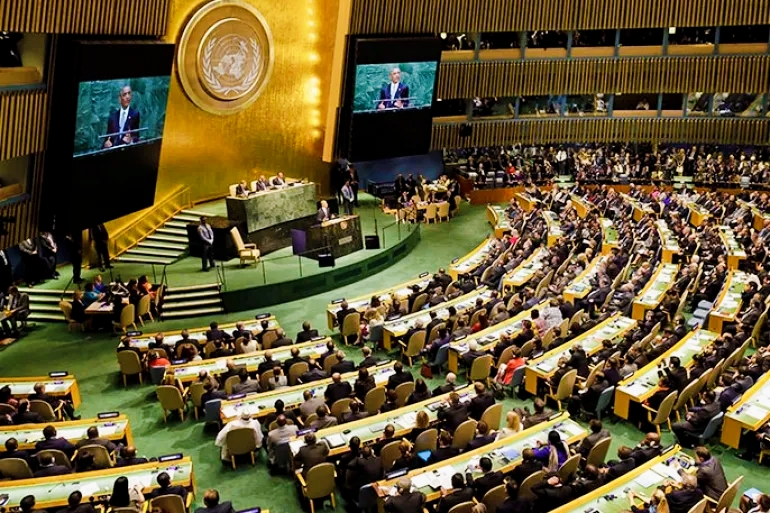The United Nations General Assembly decided yesterday, Friday, to resume the high-level international conference on the two-state solution, which had been suspended this summer due to the escalation of violence in the Middle East.
Thus, the peace settlement process for the Palestinian issue is being revived in a sensitive time, and it will be held on September 22, coinciding with the United Nations General Assembly week.
This decision came following an oral proposal made by the Kingdom of Saudi Arabia, where the Assembly emphasized the necessity of resuming the conference to enhance the implementation of the two-state solution as a way to achieve comprehensive peace in the region.
* Israeli and American Objections to the Decision
Despite the United Nations' assurances of the importance of the conference, this step has faced strong objections from both Israel and the United States.
The United States considered that resuming the conference would prolong the war in Gaza, exacerbating the situation in the sector and encouraging Hamas, as indicated by many American officials.
Deputy Political Counselor Ting Wu of the U.S. Mission to the United Nations announced her country's refusal to participate in the upcoming conference, asserting that this approach would not contribute to achieving security and stability in the region.
As for Israel, its rejection of the decision coincided with its firm stance against adopting solutions that it deems to "undermine its security," considering that resuming such conferences would only fuel the conflict.
* Uncertain Palestinian Attendance
On the other hand, there is a question about whether Palestinian President Mahmoud Abbas will be able to attend the conference in person, given the ban imposed by the United States on granting entry visas to Palestinian officials.
At the same time, resuming the conference at this time presents an opportunity for many leaders of countries and governments to express their positions and support for reviving the peace process in the Middle East.
Thus, the spotlight remains on this event, amid the entangled positions of major countries on one hand, and the escalating field crises in the Palestinian territories on the other, making this phase a new test for the prospects of peaceful solutions in the region.

